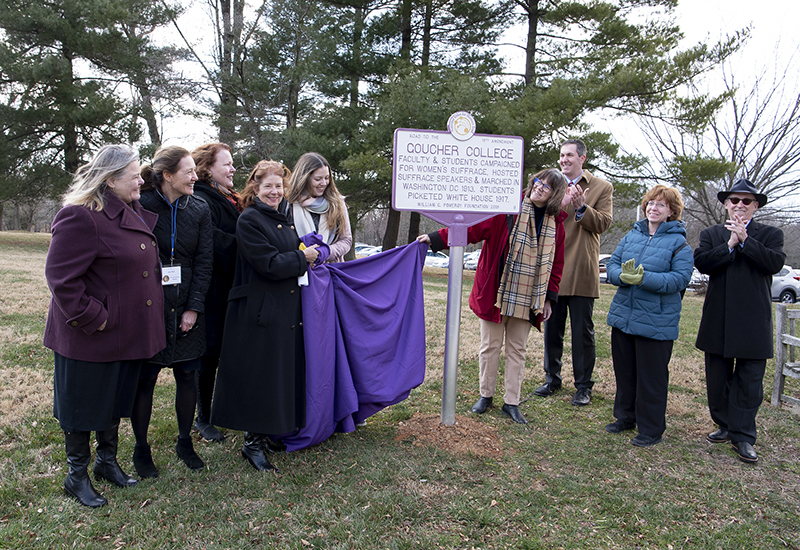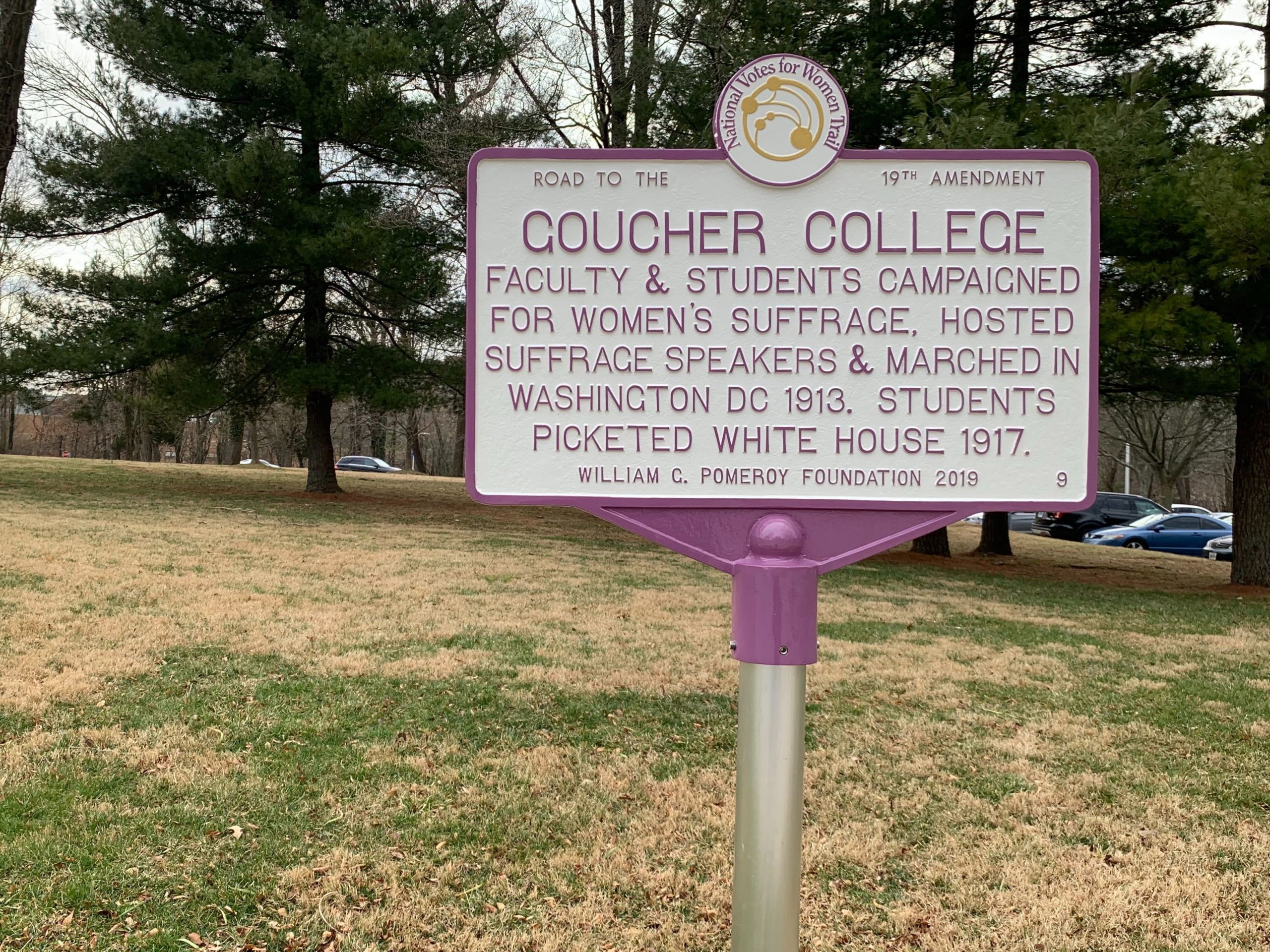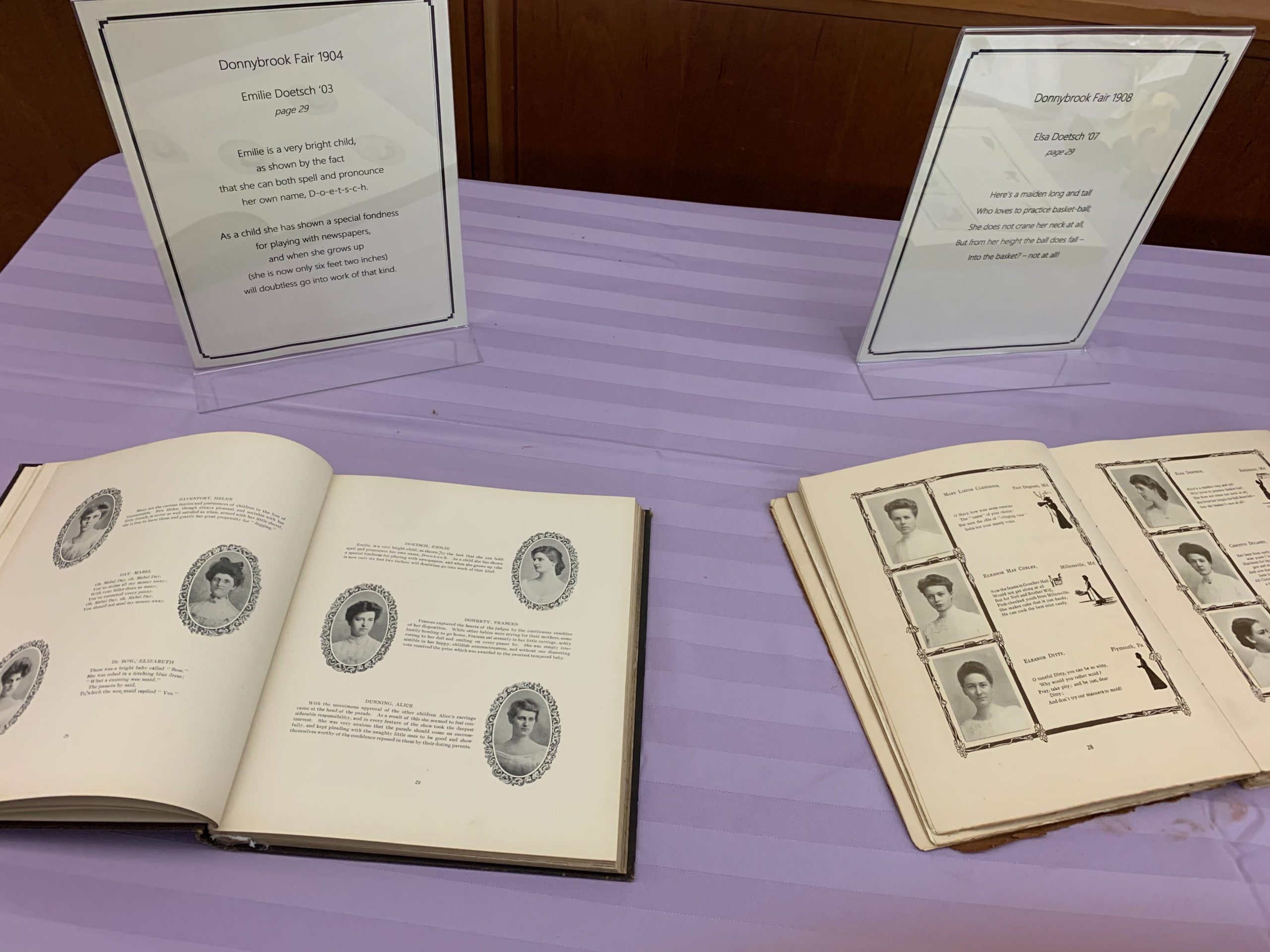
When choosing where to attend college, Emmie Starchvick made a habit of responding to any East Coast school interested in recruiting her for its golf program with a polite, “no.”
Initially, she was only interested in going to school near her southern Oregon home. But that changed when she got an email from Goucher College, which had its inaugural golf season in 2017. She’s now a junior chemistry major at the school.
“I just happened to be sitting on my mom’s bed when I got an email from Goucher,” says Emmie, whose family has longstanding ties to the school. “I asked her if she had ever heard of Goucher College, and she lit up.”
Emmie, whose real name is Emilia, is named after Emilie Doestch—her great-great grandmother—who was the second woman ever admitted to the Maryland State Bar Association, the first woman to run for city council in Baltimore City, and a suffragette who, along with several other Goucher students and alumni, was a fierce advocate for women’s voting rights.
It’s Doetsch’s efforts on the front lines of the women’s suffrage movement that brought Emmie and her mother, Karen, together on Goucher’s campus last week, as the college received an official roadside marker from the National Collaborative for Women’s History Sites (NCWHS). The recognition places Goucher on the National Votes for Women Trail, which aims to tell the untold stories of suffrage for all women.

“One of the major themes of college life at Goucher is a commitment to social justice,” says Dr. Tina Sheller, an associate professor of visual and material culture at the school. “This [marker] refocuses the spotlight on an earlier social justice movement, and connects Goucher’s past and present to the same type of commitment.”
Goucher College was a women’s institution until 1987, when it became co-ed. However, Sheller says, prior to a few years ago, the breadth of the college’s ties to the suffrage movement had previously been underreported, even by the school itself.
“This is uncovering new information,” she says. “It was an area that was not well known at all at Goucher.”
Over the course of the last few years, the professor and a group of her students have sought to change that. In 2016, Sheller was approached by Thomas Dublin, a historian and professor at Binghamton University who helps oversee the college’s Center for the Historical Study of Women and Gender. Dublin, along with his colleague, Kathryn Sklar, was editing a report entitled Women and Social Movements in the United States. Through their studies, they wanted to detail the efforts of Goucher College student suffragettes who were present at a picket near the White House in 1917. The school’s delegation at the picket was the highest of any in the country.
Sheller’s students located 13 Goucher alumni who participated in the picket, and in 2017, they presented their research and staged a large presentation to commemorate the centennial anniversary of this event. In the audience that day was Diana Bailey from the Maryland Women’s Heritage Center, who nominated Goucher for the marker.
Since the spring of last year, Sheller has been collaborating with the NCWHS to help inform the context behind the marker. Goucher’s designation is made all the more special in 2020, as this year marks the centennial anniversary of the passage of the 19th amendment, which gave women the right to vote.
“This is a new way to revisit Goucher’s early and distinguished history,” Sheller says. “It’s a very important story that needs to be told. I’m hoping this will spur more research and publicity about Goucher’s early years.”

As for the Starchvick women, who were both acknowledged at the ceremony, the honor is a visual representation of their family history. Karen was heavily influenced by the stories she grew up hearing about the determined and steadfast nature of her grandmother and four great aunts. All four women had college degrees, careers, and a family. Karen even became a CPA because her great aunt, Elsa, was one, too.
“I feel like a lot of the strength that I have as a person comes from hearing these stories as a child,” Karen says. “It really made me want to be like them and do what they had done. It’s helped me a lot in becoming the woman that I am today, to know that I came from that kind of stock and those kinds of roots.”
And now her daughter, whose name itself is a marker of her family’s past, will have a reminder of her ancestors’ efforts as she walks along the campus she fell in love with.
“I think about how all my relatives went here—all these women who had courage and dedication in a time where it was so hard for women to speak out,” Emmie says. “It really makes me want to do better and do as much as I can for women. It’s just so amazing to me.”